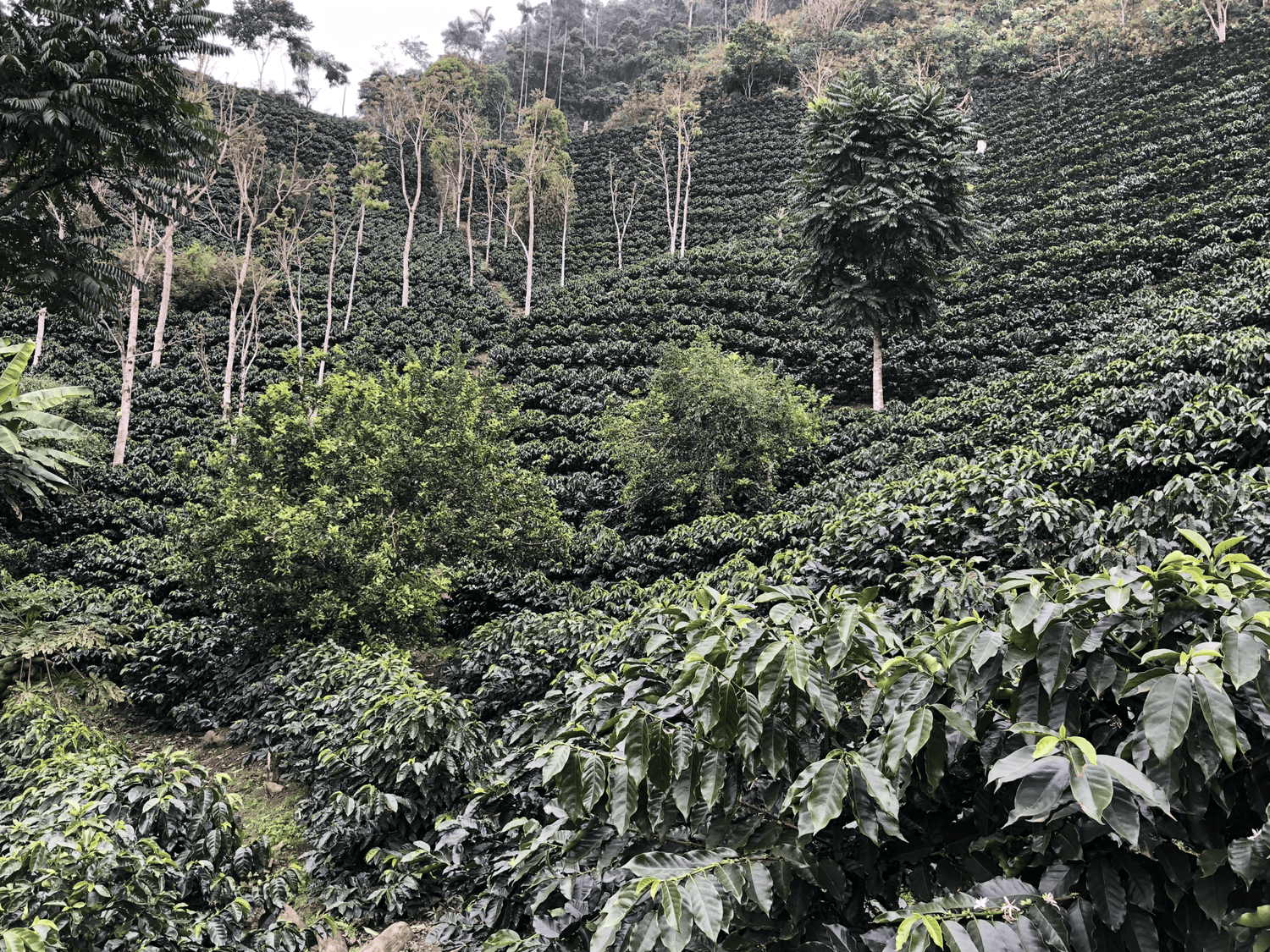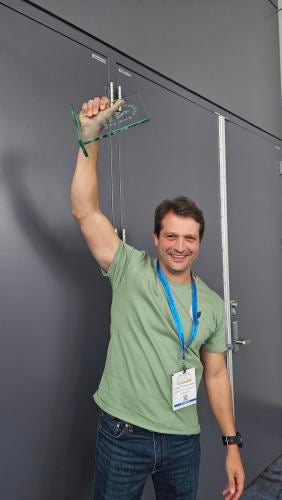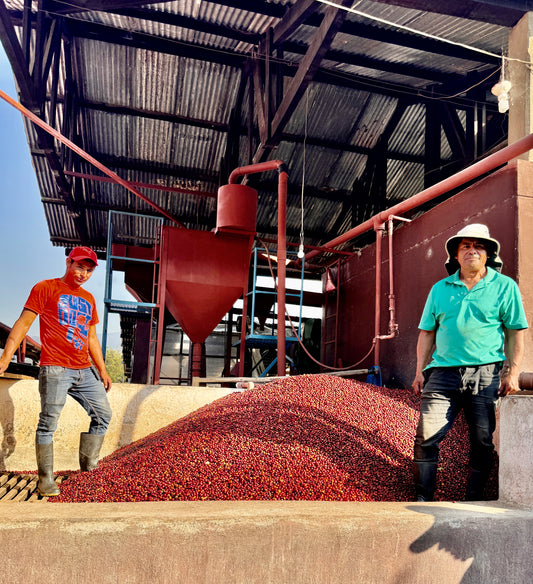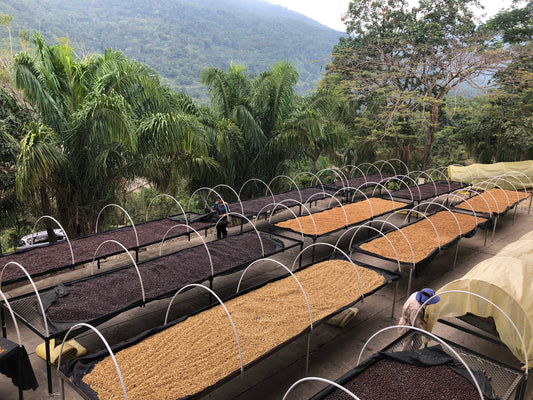Bolivian Buena Vista: A Journey of Quality and Sustainability

Embark on a journey to the heart of Bolivia and discover a journey of quality and sustainability, and learn more about why we love with our Bolivian Buena Vista coffee offering. This narrative takes you through the intricate processes of coffee production, from the nurturing of coffee plants to the meticulous processing of coffee beans. It’s a story of dedication, hard work, and a deep commitment to quality and sustainability, a story that brings to life the rich flavors and aromas of Bolivian coffee. Try it for yourself now.

The Sol De La Mañana Program
The Sol De La Mañana program is a remarkable initiative that aims to elevate the Bolivian coffee culture and diversify its offerings. This program is designed as a comprehensive school for local coffee producers, taking them on a 7-year journey to graduate as skilled coffee farmers. Taste this coffee for yourself and discover
The curriculum of this program is extensive, covering every aspect of coffee farming. It starts with the basics of setting up a nursery, moves on to planting, and then guides the producers through the stages of harvesting, pest prevention, and pruning. But it doesn’t stop at farming techniques. The program also imparts crucial knowledge about financial management, enabling the producers to run their farms as successful businesses.
The Sol De La Mañana program is a collaborative effort. Leveraging the knowledge acquired through Fincas Los Rodriguez, the program works with around 100 producers, helping them enhance the quality and quantity of their farms. This not only improves the coffee production but also contributes to a better life for the producers and their families in the long term.

The Journey of Bolivian Coffee
Caranavi is the processing hub where most of the coffee processing work is done. Every evening, their wet mill buzzes with deliveries from their farms and the producers’ farms. Each bag of coffee cherries gets weighed and processed immediately. The processing involves washing, fermenting, or moving the cherries to dry as naturals. They use raised beds and machine drying to dry the beans on site before sending them to their dry mill for quality control, packing, and exportation. Quality is checked at every step of the way, and each processed lot gets cupped on site to ensure it meets their standards.

Bolivia Buena Vista Coffee Mill
The Buena Vista Mill, located in Caranavi in the region of La Paz, is where they receive coffee from their own farms, Sol De La Mañana farms, as well as different farmers in the area. This year, they are excited to announce their collaboration with Agricafe. Agricafe works with around 500 different farmers to collect coffee from all over Bolivia and bring it to their wet mill in Caranavi in cherry form. This is the best of Bolivian Coffee.
The coffee makes the trek from up to 4 hours away down the mountains to Caranavi every evening by taxi. Agritcafe pays top dollar for only the finest coffee coming from the farms and also pays for the transport by taxi so that there are no additional expenses incurred by the farmers. Once at the Wet Mill, it is then sorted by hand to ensure only the best cherries get through. This is on top of the meticulous sorting that the farmers have done before it is ever put in the taxi.

Bolivia Agricafe Processing and Quality Control
One of the most interesting things about this wet mill is how many options they have to process the coffee. They have 6 fermentation tanks, 3 mechanical driers, a concrete patio, African raised beds, and Covered African raised beds. This helps ensure that each coffee is processed exactly the best way to bring out the flavors that their customers request.
After processing and drying, the coffee is stored in Caranavi in a temperature-controlled room for 2 months before being shipped to the dry mill at El Alto. The dry mill is mostly a typical dry mill, where they remove the parchment, run the coffee through density shakers, and finally, it is hand sorted to make sure no damaged beans get through. The unique feature of this dry mill is the black light sorting it goes through. As it is being hand sorted, it passes through these black light tents where imperfections that are previously invisible to the eye are shown as little white dots. Although not a-defect in the coffee, this coffee is removed, which increases the clarity of the cup, making the flavors of each particular coffee pop out more and become more exciting.
At every step of the process, the coffee is cupped to ensure that the product is still what was agreed upon at the time of purchase.

Overcoming Challenges
One of the biggest challenges in sourcing good Bolivian coffee is the small size of the farms. With most farms being 3 to 8 hectares, it becomes difficult to find quality coffee in the quantity needed by just dealing with individual farms. This is where Agritcafe comes in. With the ability to work with over 500 farms and find the best coffee from all of those and then pass on this quality, it makes it significantly easier.
For instance, this year they will be buying from 5 different farms that Agricafe works with and has a good standing relationship with already. So instead of hunting down these farms from all over Bolivia, they now have it much easier because of Agricafe. They are looking forward to working with Agricafe in the coming years; it is their hope that next trip down to Bolivia the farms that they are buying from this year will continue to be as good or better so that they can develop more of a relationship with the farmer. If they can find this kind of consistency, they can then start playing with processing types to create the best and most interesting coffee for their customers. They believe they have already found the best Bolivia has to offer and through their continuous improvements in milling and experimenting, they expect it to get even better.

The journey of Bolivian Buena Vista coffee is a testament to the dedication, hard work, and commitment to quality and sustainability of the local producers and the teams at Agricafe and the dedication of the Rodriguez family. It is a story of passion for coffee, respect for the land, and a deep commitment to improving the lives of the local farming community. As customers sip their cup of Buena Vista coffee, they not only enjoy the rich flavors and aromas but also become a part of this beautiful journey.




